Did you know that there is a widespread belief that broccoli is a man-made vegetable? Despite this popular misconception, the truth is quite surprising. Broccoli is not synthetic or engineered in any way. It is a naturally occurring vegetable that has been cultivated for centuries.
Many people mistakenly assume that because broccoli has unique characteristics, it must be a product of genetic modification or artificial manipulation. However, there is no scientific evidence to support this claim. Broccoli is a result of selective breeding, a process that involves choosing and cultivating plants with desirable traits over generations to create the varieties we have today.
Key Takeaways:
- Broccoli is not man-made but a naturally occurring vegetable that has been cultivated for centuries.
- There is no scientific evidence to support the idea that broccoli is synthetic or engineered.
- Broccoli is the result of selective breeding to develop desirable traits over generations.
The History of Broccoli
https://www.youtube.com/watch?v=rmVfLFiIrDI
Broccoli, with its origins dating back over 2,000 years, has a fascinating history rooted in ancient civilizations. This versatile vegetable is believed to have first emerged in ancient Rome, where it was recognized for its unique flavor and nutritional benefits.
“Broccolo,” as it was known in ancient Roman times, resembled a cabbage and was highly regarded for its medicinal properties. The vegetable was also considered an exquisite delicacy, reserved for the wealthy and elite.”
Over time, the cultivation of broccoli spread to Italy, where it gained popularity among different regions and became an integral part of Italian cuisine. From there, it made its way across Europe, gradually reaching other continents through explorers and traders.
Broccoli made its grand entrance into the Americas during the early 18th century, when Italian immigrants brought their culinary traditions with them. It quickly found its place in American gardens and became a staple in households.
The centuries of broccoli cultivation have led to the development of various varieties and the optimization of its growth. Today, we enjoy a wide range of broccoli types, each with its distinct characteristics and flavors.
Let’s explore a table highlighting some of the popular broccoli varieties:
| Broccoli Variety | Description |
|---|---|
| Calabrese | A traditional Italian variety, known for its large head and rich flavor. |
| Broccolini | A hybrid variety with longer, slender stems and smaller florets. |
| Romanesco | A visually stunning variety with unique fractal patterns and a delicate, nutty taste. |
| Purple Sprouting | A colorful variety that produces tender purple florets, often enjoyed in the spring. |
As we continue to appreciate and savor broccoli, let’s delve deeper into common misconceptions surrounding this magnificent vegetable.
Common Misconceptions about Broccoli
There is a misconception that broccoli is artificial or synthetic, but this is simply not true. Broccoli is a natural vegetable that undergoes selective breeding to develop desirable traits. It is not genetically modified or engineered in a lab. The idea of “artificial broccoli” or “synthetic broccoli” is a myth.
“Broccoli is not artificially created or synthesized. It is a naturally occurring vegetable that has been cultivated for centuries through selective breeding.”
To clarify, selective breeding is a natural process in which farmers choose plants with specific characteristics, such as size, taste, or color, to reproduce and cultivate. This helps in developing varieties of broccoli that we enjoy today. Throughout its long history, broccoli has evolved and adapted through traditional breeding techniques, not through artificial means.
- Broccoli is a naturally occurring vegetable.
- It undergoes selective breeding, not genetic modification or engineering in a lab.
- Artificial or synthetic broccoli is a myth.
Broccoli’s natural origins and cultivation methods underline its authenticity as a nutritious and flavorful vegetable in our diets. Let’s appreciate the natural wonders of broccoli and enjoy its many health benefits.
| Myth | Reality |
|---|---|
| Broccoli is artificial. | Broccoli is a natural vegetable. |
| Broccoli is synthetically created. | Broccoli is cultivated through selective breeding. |
| Broccoli is genetically engineered. | Broccoli is not genetically modified. |
The Benefits of Eating Broccoli
Broccoli is not only delicious but also packed with essential nutrients that promote good health. Including this versatile vegetable in your diet can provide numerous benefits for your body.
Vitamins and Antioxidants
Broccoli is rich in vitamins A, C, and K, which are important for maintaining healthy vision, boosting immune function, and promoting blood clotting. These vitamins also act as antioxidants, protecting your cells from damage caused by harmful free radicals.
Fiber for Digestion
Eating broccoli can help improve your digestion. This cruciferous vegetable is an excellent source of dietary fiber, which adds bulk to your stool, making bowel movements easier and preventing constipation. Fiber also supports the growth of healthy gut bacteria, contributing to overall digestive health.
Reduced Risk of Chronic Diseases
Studies have shown that consuming broccoli regularly may help reduce the risk of chronic diseases. The antioxidants and phytochemicals found in broccoli have been associated with a lower risk of heart disease and certain types of cancer, including lung, breast, and colon cancer.
Eating broccoli regularly can contribute to a healthy diet and reduce the risk of chronic diseases. Its high nutrient content and antioxidant properties make it a valuable addition to any meal plan.
Immune System Support
Broccoli contains nutrients that can support a healthy immune system. Vitamin C, in particular, plays a vital role in immune function by promoting the production of white blood cells, which help the body fight off infections. Including broccoli in your diet can help strengthen your immune system and keep you feeling healthy.
To fully harness the health benefits of broccoli, it is best to incorporate it into a well-rounded diet that includes a variety of other fruits and vegetables. Remember to enjoy broccoli in different ways, such as steamed, roasted, or added to salads or stir-fries, to maximize its nutritional value.
| Nutrient | Amount per 100g |
|---|---|
| Calories | 34 |
| Protein | 2.8g |
| Fat | 0.4g |
| Carbohydrates | 6.6g |
| Fiber | 2.6g |
| Vitamin A | 623 IU |
| Vitamin C | 89.2mg |
| Vitamin K | 101.6mcg |
The Environmental Impact of Broccoli Farming
Broccoli farming is known to be resource-intensive, requiring significant amounts of fertilizer and pesticide applications. Such practices can have adverse effects on the environment, including soil degradation, water pollution, and negative impacts on biodiversity. However, there is growing awareness and adoption of sustainable farming practices in the broccoli industry to minimize these environmental impacts.
Sustainable farming practices prioritize the long-term health of the ecosystem and aim to minimize the use of non-renewable resources. These practices involve optimizing fertilizer usage, implementing crop rotation, and adopting integrated pest management techniques to reduce pesticide use. By adopting sustainable farming practices, broccoli farmers can mitigate the negative environmental consequences associated with conventional farming methods.
Efforts are also being made to improve soil health in broccoli farming. Healthy soils not only support optimal crop growth but also act as natural carbon sinks, helping to mitigate climate change. Implementing cover cropping, composting, and other soil conservation practices can enhance soil fertility, structure, and water retention, reducing the need for synthetic inputs and promoting overall sustainability.
“Sustainable farming practices in broccoli cultivation are crucial for preserving the environment and ensuring the long-term viability of the industry. By minimizing resource-intensive practices and prioritizing soil health, we can create a more sustainable and environmentally friendly approach to broccoli farming.” – Dr. Emily Greene, Sustainable Agriculture Expert
As sustainable farming practices gain traction across the agricultural sector, the broccoli industry is continually working towards reducing its environmental impact. By embracing sustainable farming practices, broccoli farmers contribute to the conservation of natural resources, protect biodiversity, and safeguard the health of surrounding ecosystems.
Moreover, sustainable broccoli farming aligns with consumer demand for responsibly produced food. Increasingly, consumers are seeking out vegetables grown in an environmentally conscious manner. By adopting sustainable practices, broccoli farmers can meet consumer expectations, enhance marketability, and contribute to the overall sustainability of the agriculture industry.
| Sustainable Farming Practices in Broccoli Farming | Environmental Benefits |
|---|---|
| Optimizing fertilizer usage | Reduces nutrient runoff and minimizes water pollution |
| Implementing crop rotation | Improves soil fertility, reduces pest and disease pressure |
| Adopting integrated pest management techniques | Reduces reliance on synthetic pesticides, protects beneficial insects |
| Utilizing cover cropping | Enhances soil health, reduces erosion, and promotes carbon sequestration |
By implementing and promoting sustainable farming practices, the broccoli industry takes a step towards mitigating the environmental impact associated with resource-intensive vegetables. Through collective efforts, we can create a more sustainable and resilient food system that ensures the availability of nutritious broccoli while safeguarding our planet for future generations.
The Cost of Broccoli
When it comes to the price of vegetables, broccoli is often considered a more expensive option compared to crops like corn and soy. But have you ever wondered why broccoli comes with a higher price tag?
Purchasing broccoli can be pricier due to the additional costs associated with growing and cultivating this nutritious vegetable. Broccoli requires more resources, including labor, water, and fertilizers, to ensure its healthy growth and development.
However, it’s important to note that subsidies for crops like corn and soy have a minimal impact on broccoli prices. These subsidies are primarily directed towards commodity crops used in the production of processed foods, rather than fresh vegetables like broccoli.
The cost of broccoli is also influenced by market factors and supply and demand dynamics. During periods of high demand or lower supply, we may see an increase in the price of broccoli. Conversely, during seasons with abundant supply, the prices may become more competitive.
To give you a better understanding, let’s compare the average prices of broccoli, corn, and soy in recent years:
| Vegetable | Average Price per Pound |
|---|---|
| Broccoli | $2.99 |
| Corn | $0.50 |
| Soy | $0.60 |
As you can see, broccoli does come at a higher cost compared to corn and soy. However, it’s important to consider the nutritional value and health benefits that broccoli offers, making it a valuable addition to your diet despite the price difference.
So, the next time you’re at the grocery store and find yourself questioning the cost of broccoli, remember the resources and effort required to cultivate this versatile vegetable. While it may be pricier, its nutritional value and unique taste make it worth the investment in your overall health and wellbeing.
Organic vs. Conventional Broccoli
When it comes to broccoli, there is a growing debate between organic and conventional farming methods. Organic broccoli is cultivated without the use of synthetic pesticides or fertilizers, making it a popular choice among health-conscious consumers. Organic agriculture promotes lower-input farming methods, reducing the impact on the environment. However, there are some key differences between organic and conventional broccoli production that must be considered.
The Yield Factor
One notable difference between organic and conventional broccoli farming is the yield. Conventional farming practices often involve the use of synthetic inputs, such as chemical fertilizers and pesticides, which can enhance crop growth and protect against pests and diseases. This typically results in higher yields compared to organic farming. Organic broccoli, on the other hand, relies on natural methods and organic-approved inputs, which may result in lower yields. This discrepancy in yield potential is an important aspect to consider when evaluating organic farming as a solution for feeding a growing population.
A Niche Approach
While organic broccoli has its advantages, it is important to note that it may not be the ultimate solution to the global challenge of food production. Due to the lower yields associated with organic agriculture, it may not be feasible to rely solely on organic farming practices to sustainably feed a growing population. Instead, organic farming is often seen as a niche approach that caters to consumer demand for organic produce and supports more sustainable farming methods.
| Organic Broccoli | Conventional Broccoli |
|---|---|
| Grown without synthetic pesticides or fertilizers | May involve the use of synthetic inputs |
| Promotes lower-input farming methods | May utilize chemical inputs for enhanced growth |
| Lower yields compared to conventional farming | Generally higher yields |
| Caters to consumer demand for organic produce | Provides a wider availability of broccoli |
While the debate between organic and conventional broccoli farming continues, it is clear that both methods have their own merits. The choice between organic and conventional broccoli ultimately comes down to personal preferences, environmental considerations, and the balance between sustainability and food production. It is important for consumers to stay informed and make choices that align with their values and priorities.
The Impact of Supermarkets in Food Deserts
Access to healthy food is a crucial factor in improving the overall well-being of individuals living in food deserts. Food deserts are areas with limited access to affordable and nutritious food, often due to a lack of supermarkets or grocery stores in the vicinity. While bringing supermarkets to these underserved communities is important for increasing access to healthy food options, it is not a comprehensive solution to tackling the obesity problem.
Studies have shown that simply introducing a supermarket into a food desert does not lead to meaningful changes in health outcomes. While access to healthy food is a crucial component, addressing obesity requires a multi-faceted approach that takes into account various factors, such as education, socio-economic status, and cultural influences.
It is essential to recognize that improving access to healthy food is only one piece of the puzzle. Education plays a vital role in empowering individuals with the knowledge and skills to make informed nutritional choices. Additionally, socio-economic factors, such as income level and affordability of healthy options, can significantly impact dietary patterns and overall health.
“Bringing supermarkets to food deserts is a step in the right direction, but we must address the broader systemic issues that contribute to poor health,” explains Dr. Sarah Johnson, a leading researcher in public health. “We should focus on comprehensive strategies that encompass not only improved access to healthy food but also education, affordability, and community engagement.”
While access to healthy food is undeniably important, efforts to combat obesity and promote better health outcomes in food deserts require a holistic approach. By addressing the complex factors that contribute to unhealthy eating habits, we can make a meaningful impact on the well-being of individuals in these communities.
It is essential to advocate for policies that support the establishment of supermarkets and grocery stores in food deserts while simultaneously investing in education and addressing socio-economic disparities. By doing so, we can create lasting change and improve the overall health of communities.
Conclusion
Broccoli is a remarkable vegetable that has been enjoyed for centuries. It is important to clarify that broccoli is not man-made, but rather a naturally occurring plant. Its long history and provenance can be traced back to ancient Rome, making it an integral part of our culinary heritage.
In addition to its rich historical background, broccoli offers significant health benefits. Packed with essential vitamins, such as A, C, and K, as well as fiber and antioxidants, it is a nutritious addition to any diet. Consuming broccoli has been linked to a reduced risk of chronic diseases like heart disease and certain types of cancer, making it a valuable component of a balanced, healthy lifestyle.
However, it’s crucial to consider the environmental impact of broccoli farming. Sustainable agriculture practices, such as reducing the use of synthetic fertilizers and pesticides, are essential in mitigating the potential harm to our environment. Embracing biopesticides and sustainable farming methods can help minimize the ecological footprint associated with broccoli production and preserve the delicate balance of our ecosystems.
While organic broccoli is an option valued by many for its avoidance of synthetic pesticides and fertilizers, it is important to note that it is not a comprehensive solution to global food security challenges. The world’s growing population necessitates sustainable agricultural practices that can ensure an abundant food supply while minimizing harm to the environment. It is encouraging to witness the increasing consumer demand for organic produce, as it underscores the significance of sustainable and environmentally friendly farming methods. By prioritizing sustainable agriculture and responding to consumer demands, we can continue to enjoy the benefits of delicious, nutritious, and environmentally responsible broccoli.

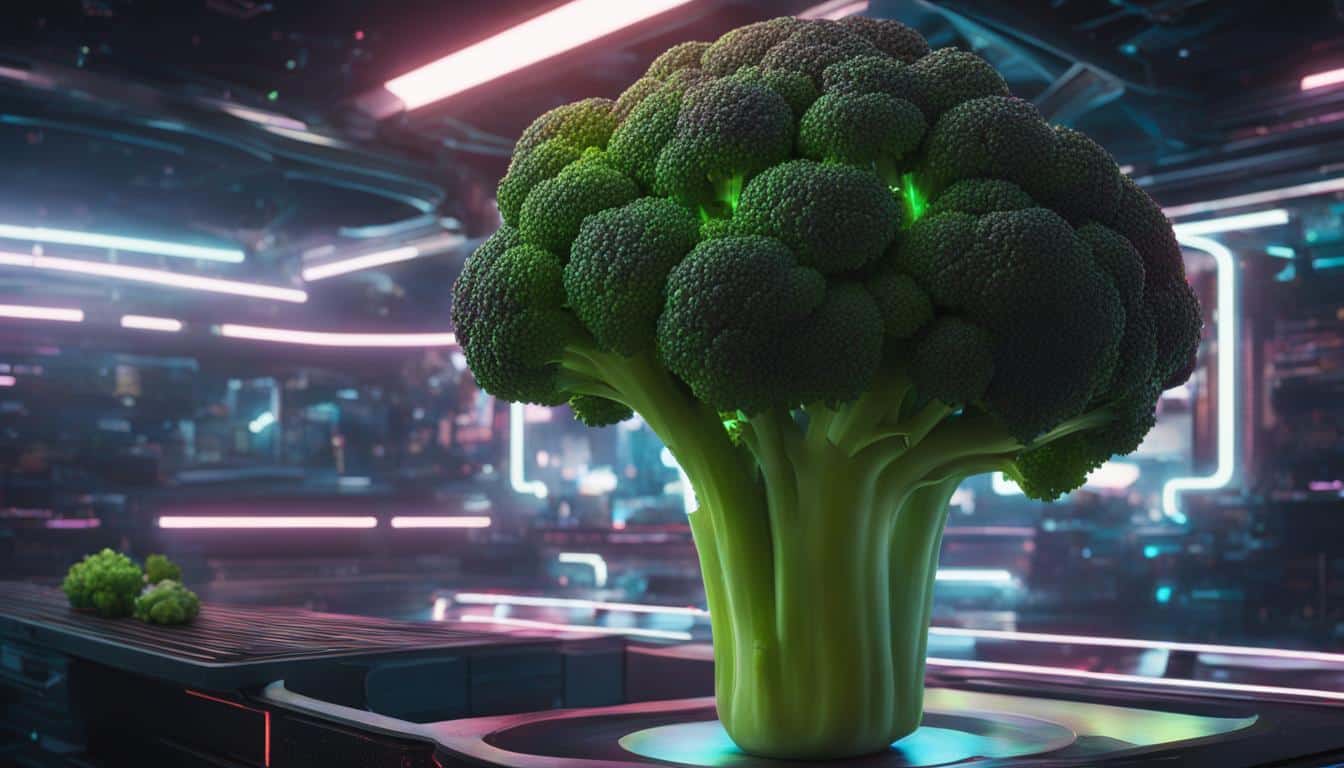
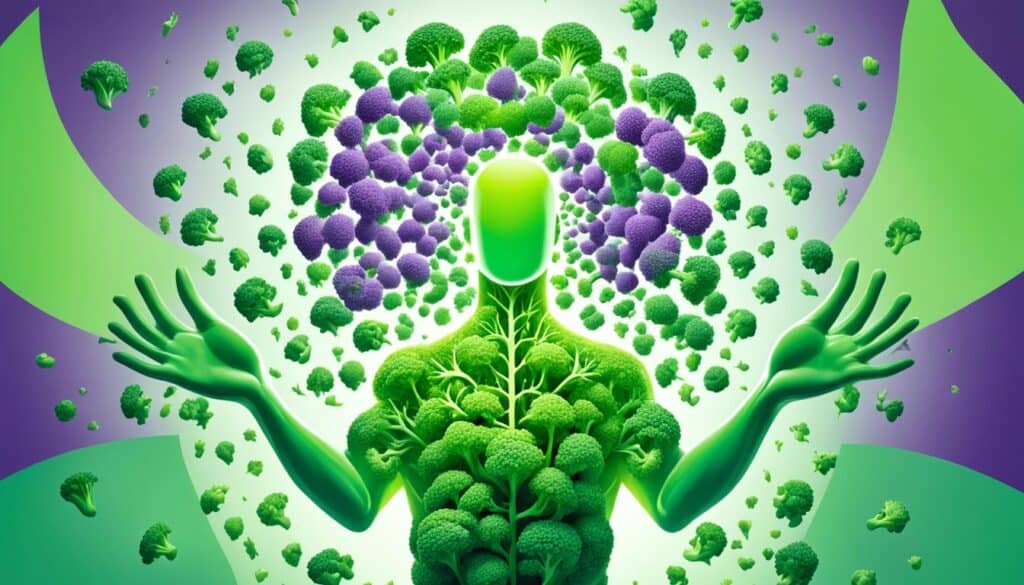
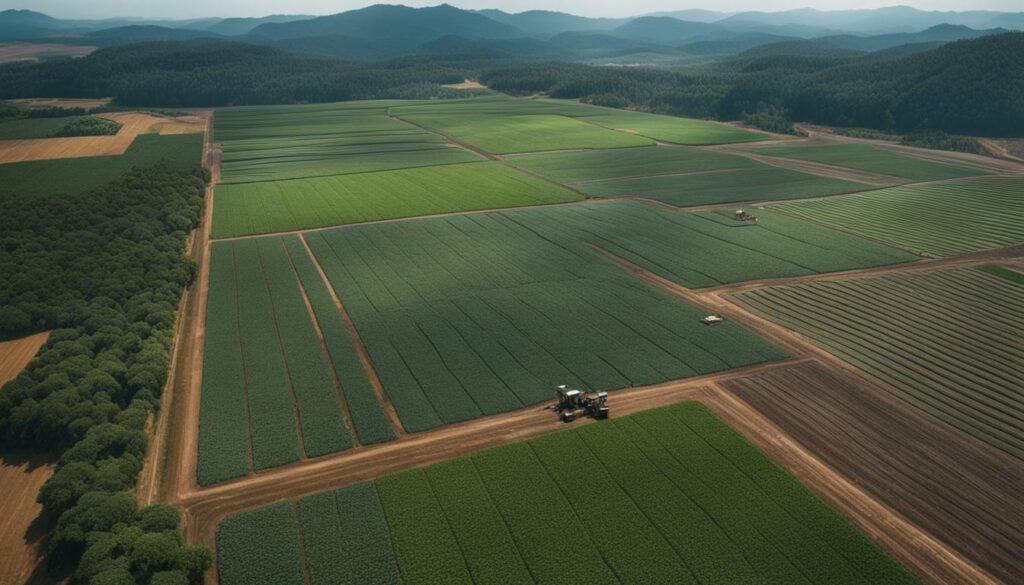
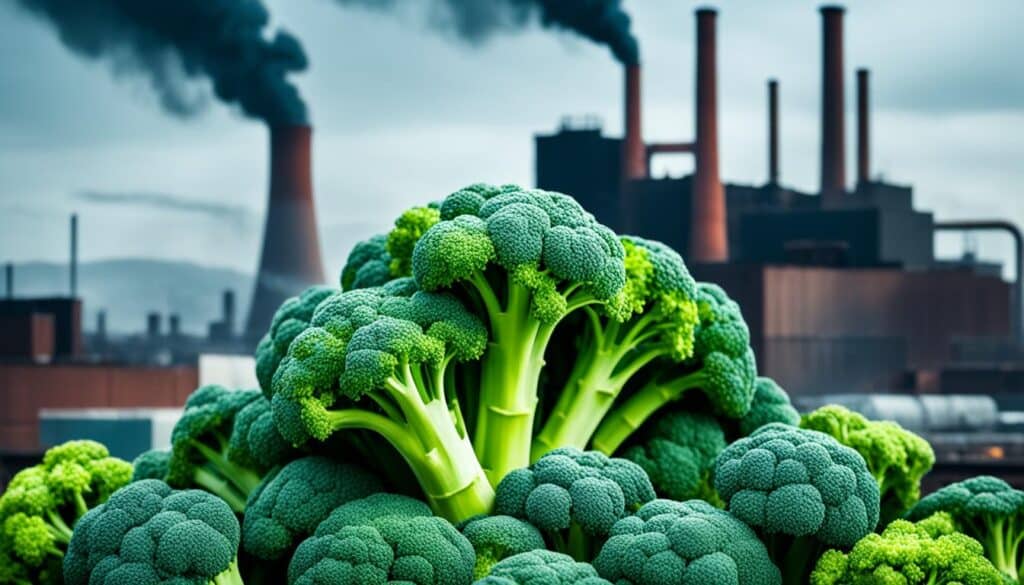
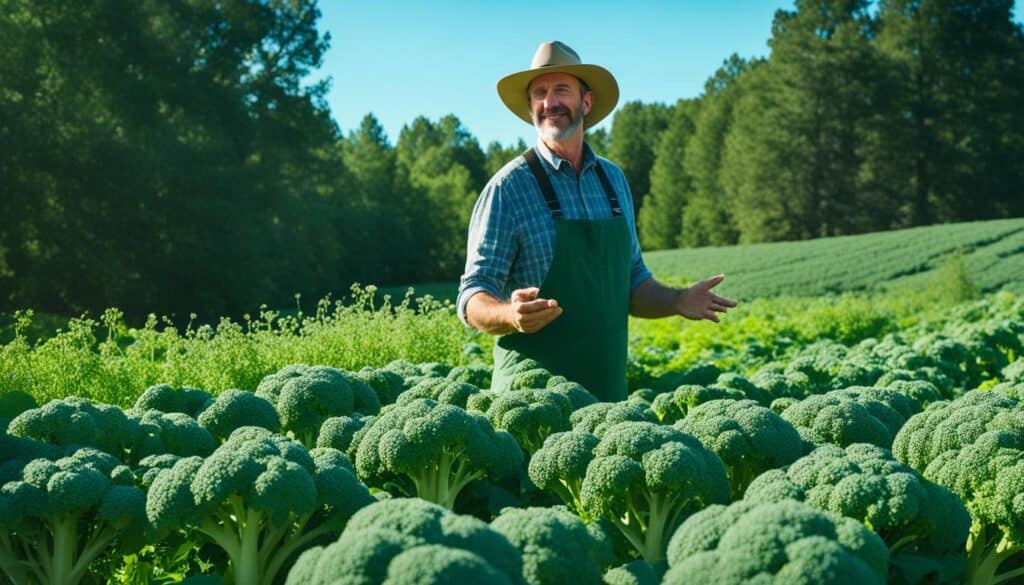



Leave a Reply